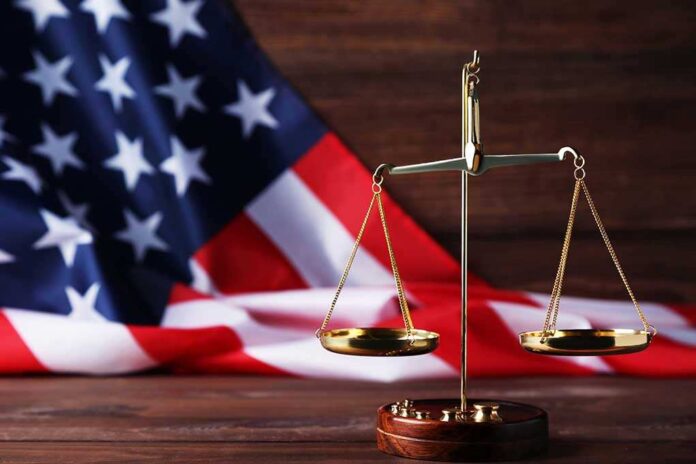
President Trump’s pardons granted to January 6th rioters sparks a legal conundrum as authorities scramble to define their boundaries concerning Dan Wilson’s additional crimes.
Quick Takes
- A Justice Department prosecutor faced a challenge clarifying Trump’s pardon scope for Dan Wilson’s later crimes.
- U.S. District Judge Dabney Friedrich questioned the government’s shifting stance on pardon interpretations.
- Friedrich warned that Wilson’s subsequent crimes might not be covered by the pardon.
- The case could set a precedent on presidential pardons’ extent.
Trump’s Pardons Under Judicial Scrutiny
U.S. District Judge Dabney L. Friedrich scrutinized the Justice Department’s changing rationale regarding President Trump’s mass pardons for January 6 rioters. The legal disputes revolved around their applicability to subsequent, unrelated crimes like those committed by Dan Wilson in 2023. Friedrich stressed the requirement for pardons to have a fixed meaning, asserting they should not act as blanket immunity for all future crimes. She noted a pardon could be explicitly extended to cover Wilson’s later gun charges if required.
The Justice Department’s argument suggested Trump’s Jan. 6 pardon did not extend to Wilson’s 2023 gun charges, a position that faced judicial skepticism. Friedrich highlighted the “meaning of the pardon can’t be shifting from day to day,” indicating the judiciary’s struggle with the Justice Department’s misinterpretation claims. The fluctuating official stance raises concerns about clemency intentions and judicial authority to determine pardon scope.
Wilson’s Legal Complications
Dan Wilson pleaded guilty to conspiracy during the Capitol riot alongside separate 2023 gun charges. The Bureau of Prisons mistakenly released him following Trump’s pardons. Wilson’s re-arrest provoked an emergency hearing where Judge Friedrich expressed skepticism about the pardon covering new offenses. Prosecutors declared their understanding of Trump’s pardon had evolved, stressing it did not encompass non-riot crimes committed afterward.
“The intent cannot evolve over time as new cases are brought to his attention.” – Friedrich
Friedrich’s comparison of Wilson’s case with other defendants spotlighted pardons’ inconsistent application. Friedrich critically examined discrepancies, such as why certain post-pardon offenses, like Edward Kelley’s murder plot, were excluded while others were controversially included. Meanwhile, Judge Friedrich indicated plans to take Wilson’s case under advisement, hinting at a potential stay to delay imprisonment pending appeal.
Potential Legal Precedents
Assistant U.S. Attorney Jennifer Blackwell acknowledged the evolving interpretation of Trump’s pardon intents, accentuating the judiciary’s responsibility in resolving the constitutional uncertainties. Such discussions could catalyze legislative review of presidential pardons, particularly concerning future and unrelated charges.
The outcome of this legal struggle may define future pardon limits, challenging the administration’s previous mass clemency ambitions. With pivotal implications at stake, broader clarity on presidential pardon authority would ultimately safeguard the constitutional separation of powers between executive forgiveness and judicial scrutiny.
Sources:
- Judge grills DOJ over flip-flop on whether Jan. 6 pardon covers one man’s separate case
- Judge criticizes Justice Department’s broad reading of Trump’s Capitol riot pardons – ABC News
- Federal judge grills Trump’s Justice Department over argument that Jan. 6 pardon covers a separate gun case












